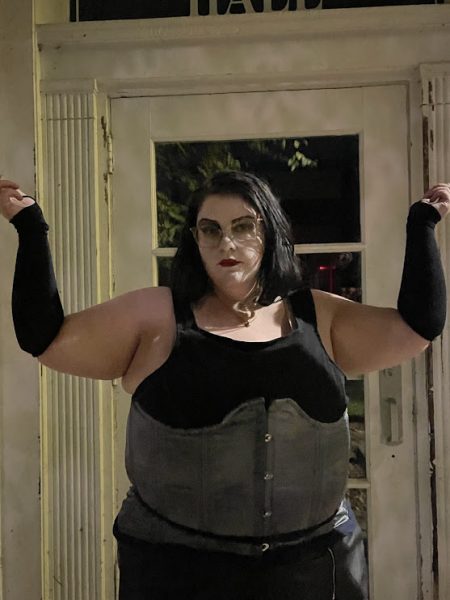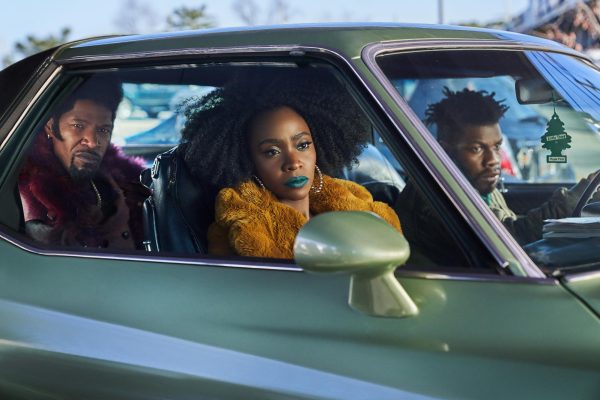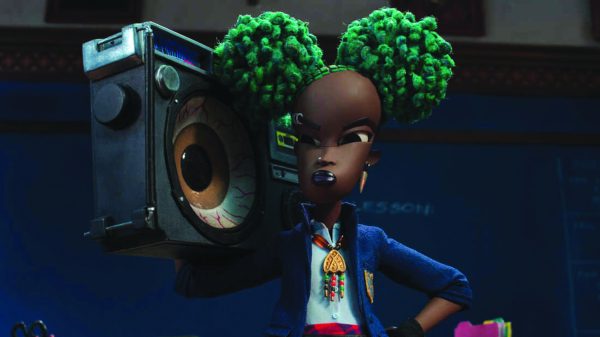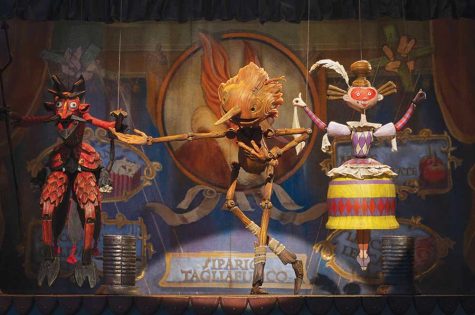“Don’t Look Up” impresses
“Don’t Look Up” is a Netflix original film that crosses the line of fiction and entangles it with the nasty truths of modern society. Director, producer, and writer Adam McKay collected a star-studded cast to create an over-the-top satirical piece that depicts just how detached much of society has become.
This is not the first extravagant project on which McKay has worked. He was executive producer on the 2012 film “The Dictator,” whose raunchy political comedy resembles that of “Don’t Look Up.” McKay also produced the 2019 Netflix series “Dead to Me,” a deeply disturbing series that is brightened by crude humor.
Leonardo DiCaprio, known for his role in “Titanic,” “The Great Gatsby,” and “Inception,” co-stars as Dr. Randall Mindy, an astronomy professor at Michigan State University. Alongside DiCaprio stars Jennifer Lawrence, the lead of the “Hunger Games” franchise, as PhD student Kate Dibiasky, a student of Dr. Mindy’s. McKay uses the discovery of a dangerous comet, whose path is expected to strike Earth six months from the start of the film, to parallel the very real climate change panic (or lack thereof) that has been ailing our society.
When Dibiasky discovers the comet, she and Dr. Mindy take the information to higher-level astronomers, rousing enough concern to quickly reach the eyes and ears of NASA. One would expect this level of urgency to alert the president and their staff; however, Meryl Streep’s President Orlean is more concerned with her poll numbers and celebrity drama. It is decided that an apocalyptic crisis would be bad for her poll numbers, and Mindy and Dibiasky are mocked and dismissed.
The sheer ridiculousness of Streep’s character is a not-so-subtle nod to former president Donald Trump, even down to donning a red hat with a cheesy slogan. Although this parallel is obvious, it shines a light on just how selfish and fake politicians can be. This role contrasts starkly to her well-known roles in light-hearted “Mamma Mia!” and heart-breaking “Sophie’s Choice.”
In one scene during a rally, Orlean urges all of her followers not to look up, which was a direct response to the scientific community urging otherwise. The audience was littered with the previously mentioned red hats that resembled Trump’s iconic campaign merchandise, and the energy was exactly like that of his political rallies.
My quarrel with Orlean’s character, however, is with the casting; Streep did an excellent job at playing an over-the-top character, but it felt like a step back to portray such a slimy politician as a female. This gives room for the metaphor to be lost and to end in unintended sexism.
While many scenes are well-structured and provide both powerful metaphors and provocative comedy, there are also plenty of scenes that fall short. Specifically, President Orlean’s son, who is played by Jonah Hill (“21 Jump Street,” “The Wolf of Wall Street”), is reduced to a few tasteless “bro” jokes in each of his scenes. With a cast as packed as this, not every well-known actor can play a major role; however, some characters such as Hill’s could have been better written.
English actor Mark Rylance, known for his lead role in “BFG,” makes an appearance as an awkward tech CEO named Peter Isherwell who is easily comparable to Elon Musk or Steve Jobs. He uses his money and influence to convince the president to hold off on destroying the deadly comet because it houses precious materials that can be harvested for millions of dollars. This is a big win for capitalism. To nobody’s surprise, Isherwell’s mission does not go as planned.
In certain scenes, cinematographer Linus Sandgren made the choice to use generic stock clips of nature and society to remind the viewer that the world is a beautiful place despite all the negativity. It also shows that, although this film takes place in America, this disaster is going to impact the entire planet. While the message is important, the use of the stock clips felt cheap and not straightforward enough to make much sense. This is surprising, considering his previous beautiful work in movies like “La La Land.”
Despite some poor cinematography and scripting choices, this film has a lot of beauty. The message being portrayed is that we as a society need to do better and care more about our planet and each other. With the ongoing climate change crisis, and now with the COVID-19 pandemic, society should trust scientists and professionals to do what is best for us.
Casting director Francine Maisler did a spectacular job in collecting a cast of big-name celebrities. She was responsible for the casting of many major films like “The Revenant” (starring DiCaprio), and “Little Women” (including Meryl Streep). Each character in “Don’t Look Up” plays their role so convincingly that the odd combination of actors across genres felt natural. DiCaprio even works to bring attention to climate change in his life outside of the film, making him a seemingly perfect fit for the main role.
Nicholas Britell is the man behind the music, which plays a major component in the energy of the film. The instrumental score of the movie features offbeat instruments, such as toy pianos and mandolins, alongside full orchestras and jazz bands. When these elements come together, the result is an appropriate melancholy.
Britell also played a hand in writing the two featured songs, one of which is performed by Ariana Grande and Kid Cudi’s characters as a love-ballad-turned-climate-activism-anthem. The other featured song is by Bon Iver and plays during the end credits.
If you’re looking for a light-hearted film that will make you laugh, but has more serious subtext, I highly recommend giving “Don’t Look Up” a watch. This film takes every opportunity to point out the flaws of society, from the capitalistic money-hungry CEOs to the celebrity-obsessed citizens. While some scenes are perhaps making the point too aggressively, the point is still being made: listen to the professionals, and maybe a comet won’t kill us all in six months.

First year student from Orlando, FL.
Working on her second bachelors.
Love poetry, anime, and her dog (mostly her dog).
Dreams of living in a van.










